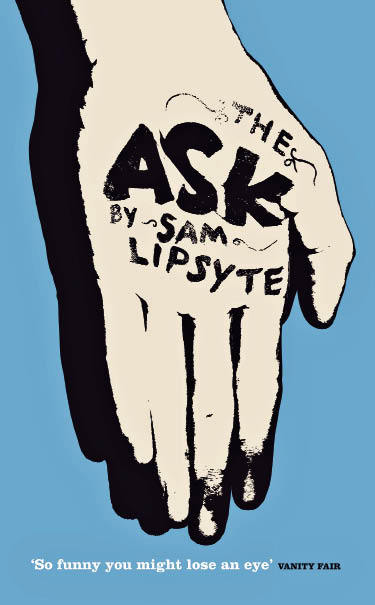At the beginning of The Ask, Horace sits with Burke and proclaims that America is a ‘run down and demented pimp’.
At the beginning of The Ask, Horace sits with Burke and proclaims that America is a ‘run down and demented pimp’. Horace is not Quintus Horatius Flac- cus; and Burke is not Edmund Burke. The two men are employees of the fundraising department of a mediocre university in New York, whose job is to approach the rich families of former students and solicit donations. This is, of course, a peculiarly American job, where the super-rich are relied upon to finance academe in exchange for favours bestowed on their offspring. At least, that’s the version of private college funding put across by Sam Lipsyte.
The narrative arc on which this novel is hung is Burke’s attempt to secure a large cheque for the university, and thereby keep his job. But in naming him and Horace, Lipsyte points us towards his subtext: the freedom of men from slavery and America from colonialism. Within the first lines, he is already posing the big question of this novel — arguably the big question of modern American fiction: what has become of the promise of the American dream? Is it really ‘slumped in the corner of a pool hall, some gummy coot with a pint of Mad Dog’?
So, Horace and Burke are chewing this over when in walks Vargina and tells them to get on with their work. And here is what Lipsyte does throughout this book. He chucks into the weighty literary concerns fairly rubbish jokes, and concludes (though not in so many words) that the original Horace was probably onto a winner when he came up with ‘nunc est bibendum’ rather than the more hopeful ‘carpe diem’.
This does not, however, make for an unremittingly depressing book. Lipsyte’s humour can fall flat — the line of jokes best described by the title of the woeful ITV reality television show Kids Do the Funniest Things is particularly unfortunate — but his depictions of a motley cast of losers, wasters and violent no-hopers are compelling, almost beautiful. Meanwhile, the philanthropist whose bequest Burke is trying to secure for the university (the ‘ask’ of the title, in fundraising speak) is a masterpiece of self-satisfaction.
Later, Burke asks Vargina: ‘If I were the protagonist of a book or a movie, it would be hard to like me, to identify with me, right?’ That is the novel’s other big question. Or perhaps it is the same question (whither America?, whither the American?) differently phrased. Burke is a failed artist. He has lost his pretensions, and with them almost all his self-belief. But he has gained cynicism, detachment and some insight. We might not want his life, but it’s hard to escape the feeling that he’s probably a whole lot better now than he would have been as a smug young idealist. The fact that he sheds tears at the end of bad romantic comedies, when once he would have mocked, is a step in the right direction.
Lipsyte stops short of redeeming anyone. In fact, some of his most savage observations are left until the book is nearing its end. Nonetheless, his conclusion is far from hackneyed anti-Americana. I don’t think it is any coincidence that the original Horace also said: ‘Dulce et decorum est pro patria mori’.






Comments